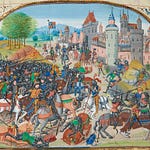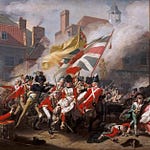Originally published on March 30, 2020 (Episode 143)
Introduction
On October 30, 1872, the wife of Presidential candidate Horace Greeley died. On November 6, Greeley lost in a landslide to President Ulysses S. Grant, winning only six out of 37 states in the electoral college. By November 13, he entered into an asylum for the treatment of “mental and nervous disorders,” where he died on November 29. Yet the last month of his life was probably not the most eventful of Greeley’s life.
For decades he had been the founder and editor of the New York Tribune, and known throughout the United States. Greeley was in many ways one of America’s first celebrities—he was famous too many for simply being Horace Greeley. But he was also—especially in his own eyes—a species of public intellectual long before the term was coined, doing his often erratic thinking in full view of his readers. And that was a public of tens of thousands, for whom the words of Horace Greeley were oracular in their import, if not lack of clarity; words which at times could shape public events.
How those words did or did not shape events, and how Greeley succeeded and failed in his intellectual mission is at the heart of the arguments marshalled by James Lundberg in his book Horace Greeley: Print, Politics, and the Failure of American Nationhood.
About the Guest
James M. Lundberg is Associate Professor of the Practice and Director of Undergraduate Studies in History at the University of Notre Dame. His research and teaching center on the early American republic and the United States in the nineteenth century, with a particular focus on the history of culture, ideas, media, and communication.
Discuss
How does Greeley seem very modern, even contemporary? How does he seem very, very different? Share your thoughts in the comments below — and consider forwarding this post to a friend who would enjoy the conversation.











